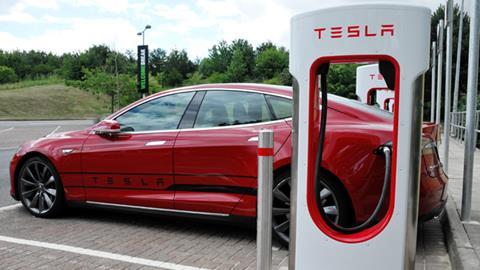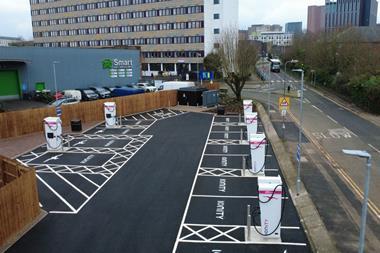
More new battery electric cars were sold in 2021 than in the previous five years combined, but overall sales of new cars were well down on pre-pandemic levels.
According to the Society of Motor Manufacturers and Traders (SMMT). the market in 2021 was down 28.7% on pre-pandemic 2019, at 1.65 million units, representing the second worst year since 1992.
However, 190,727 new battery electric vehicles (BEVs) were registered, along with 114,554 plug-in hybrids (PHEVs), meaning 18.5% of all new cars registered in 2021 can be plugged in.
This is in addition to the 147,246 hybrid electric vehicles (HEVs) registered which took a further 8.9% market share, meaning 27.5% of the total market now electrified in some form.
These figures were underlined by the Tesla Model 3 being the top seller of any car model in the month of December, and the second highest seller for the year behind the Vauxhall Corsa.
Petrol-powered vehicles, including mild hybrids (MHEVs), remain Britain’s most popular powertrain, accounting for 58.3% of all new cars registered in 2021, with diesel-powered cars including MHEVs making up 14.2% of the market, followed by BEVs at 11.6%, HEVs at 8.9% and PHEVs at 7.0%.
SMMT chief executive Mike Hawes said: “It’s been another desperately disappointing year for the car industry as Covid continues to cast a pall over any recovery. Manufacturers continue to battle myriad challenges, with tougher trading arrangements, accelerating technology shifts and, above all, the global semiconductor shortage which is decimating supply.
“Despite the challenges, the undeniable bright spot is the growth in electric car uptake. A record-breaking year for the cleanest, greenest vehicles is testament to the investment made by the industry over the past decade and the inherent attractiveness of the technology. The models are there, with two of every five new car models now able to be plugged in, drivers have the widest choice ever and industry is working hard to overcome Covid-related supply constraints.
“The biggest obstacle to our shared net zero ambitions is not product availability, however, but cost and charging infrastructure. Recent cuts to incentives and home charging grants should be reversed and we need to boost the roll out of public on-street charging with mandated targets, providing every driver, wherever they live, with the assurance they can charge where they want and when they want.”

































No comments yet